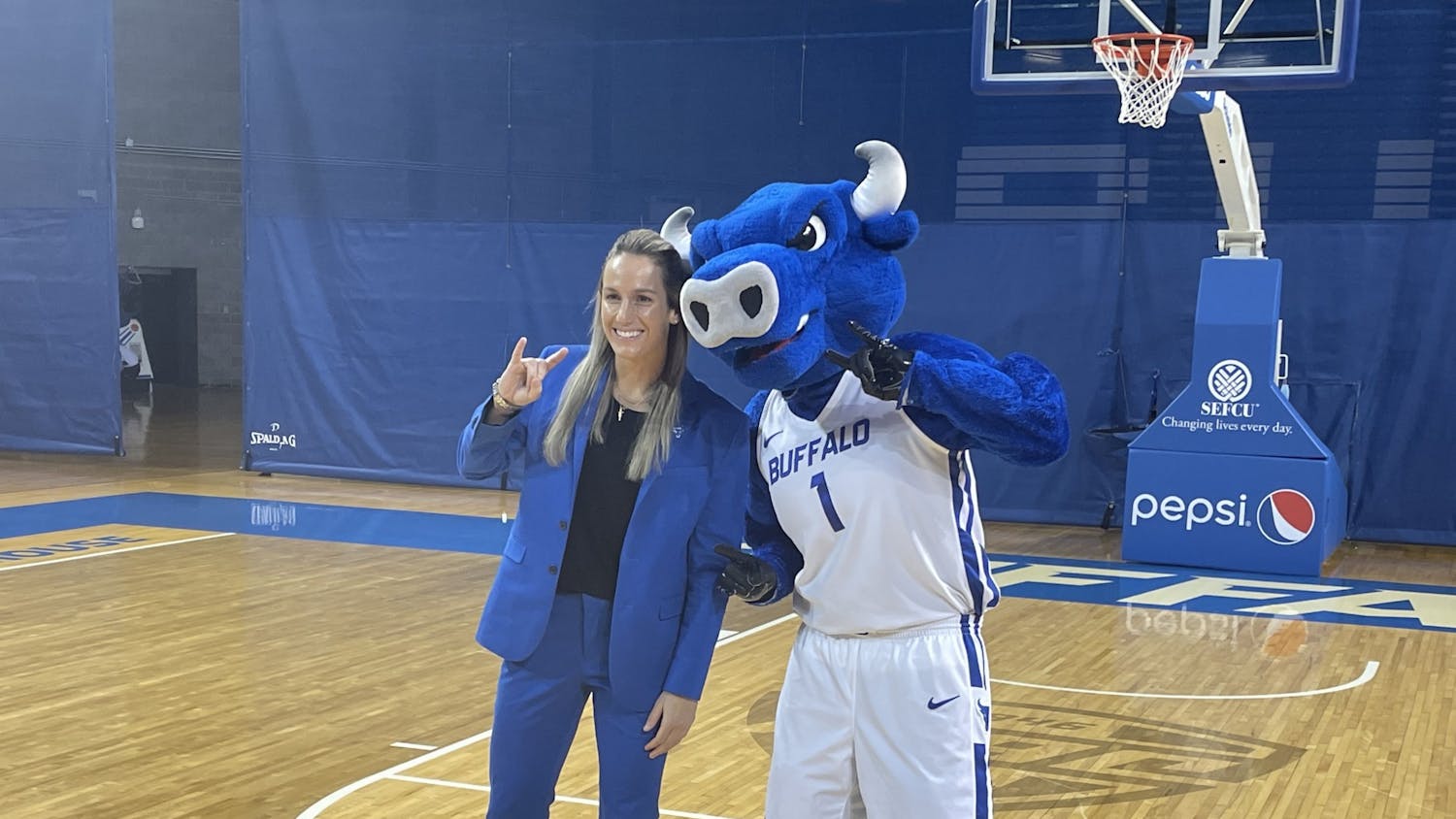When it was announced on Nov. 24 Ferguson Police officer Darren Wilson would not be indicted in the death of Michael Brown, law students Andrew Tabashneck, Ammad Wajahat and Ben Nelson travelled to Ferguson to do legal observing. They spoke with several men and women who had been peacefully protesting – some of whom who had been doing so for more than 100 consecutive days.
Tabashneck tried to bring a similar peaceful discussion to UB on Wednesday.
The Social Work Graduate Student Association presented “What Ferguson can Teach Us: Working Together for Justice and Community Safety” on Wednesday afternoon. The panel discussion in the Student Union consisted of several UB students and faculty members. Two University Police Department officers and four Buffalo community members – known for their work helping impoverished youth – led the panel.
Tabashneck said he believed it was the first panel of its kind on the issue in New York State.
“After witnessing the men and women of Ferguson come together in their pursuit for justice, I was inspired to put together a program of activists, intellectuals and police officers who are united in the desire to work together for safe, strong communities that allow every child with enough resources to grasp his highest potential,” he said.
On Aug. 9, 2014, Darren Wilson fatally shot Michael Brown, who was unarmed, six times in Ferguson, Missouri. Wilson, a white police officer, and Brown, a black 18-year-old, were involved in an altercation prior to the shooting.
The grand jury did not indict Wilson, leading to protests in Ferguson and across the country.
Tabashneck said he decided the best way to educate others was to bring in members of the Buffalo community to discuss the topics and what society can do to change the way it thinks about interactions between police and people of color.
Lana Benatovich, president of National Federation for Just Communities, John Washington, community organizer for People United for Sustainable Housing, Sam Magavern, co-director of Partnership for the Public Good, Curtis Alford, program director of Urban Christian Ministries spoke alongside UPD’s Feputy Chief of Police Joshua Sticht, and officer Valerie Dobson.
Although the discussion began with the issues in Ferguson, it soon turned to discussions on police bias, accountability and stereotypes due to questions from the audience.
Washington said often times stereotyping changes the outlook police have on a situation.
“Joyriding may be seen as grand theft auto and an altercation may seem like an assault,” he said.
Many of the audience’s questions were directed toward Sticht and Dobson – particularly on police officers being held accountable for their actions.
“Our mission is to be a part of the community,” Sticht said about his and Dobson’s participation in the panel. “This is our part.”
Tabashneck said he was happy these questions were asked and he said UPD should be praised for their part in the community.
“Other police departments should look at the UB police department as a model for promoting diversity and fairness of the community,” he said.
A member of the audience brought up the issue of police wearing body cameras to record their policing. Alford said it wouldn’t make much of a difference.
“It takes more than just one thing to fix our problem,” he said.
Sticht and Magavern, however, said body cameras could bring positive changes in the way police matters are handled.
“Use of force has gone down dramatically with use of body cameras,” Magavern said. “Citizens and good cops like them. For cops, it’s proof that they’re not doing anything wrong.”
The panelists also said education is the key to changing the perception of police stereotyping and an “us versus them” attitude. Washington and Alford agreed educating students at a young age about black history is crucial in taking a step forward to end separation people may feel is between races.
Ultimately, Tabashneck said his goal was for people to hear both sides of the discussion and allow them to make their own judgments.
“When these things happen it’s easy for people to become very angry because victims are involved,” Tabashneck said. “I think as a society we need to be more sympathetic and open-minded on both sides.”
Marlee Tuskes is a contributing news writer and can be contacted at news@ubspectrum.com




